More Than HIV: Trump’s Cuts Shatter Kenya’s Health Care System
Trump’s abrupt PEPFAR cuts are crippling critical health care services for tuberculosis, women and children.
After two years of living with tuberculosis (TB), 38-year-old Selina Kimuto’s condition is worse than ever. A single mother living in Kibera—Nairobi’s biggest slum—Kimuto had been receiving medication to treat her infection. But in June, her hospital told her that they wouldn’t be able to give her any more until October, due to severe shortages caused by the sudden pull-out of U.S. foreign aid.
Since then, Kimuto’s condition has rapidly deteriorated.
“I’ve really tried, but I can’t do it alone, to wash even my own clothes by myself,” Kimuto told Uncloseted Media. “Even the housework, I’m not doing it by myself. Sometimes I have to call my neighbors to come and help me.”
Kimuto’s medication had been funded in part by the President’s Emergency Plan for AIDS Relief (PEPFAR), the U.S. foreign aid program that has been a leading force in the global fight against the HIV/AIDS epidemic since it was launched by President George W. Bush in 2003.
But on day one of President Donald Trump’s second term, the program was hit with a stop-work order and a complete funding freeze on all foreign aid. While limited services have been restored, the State Department is reportedly drafting a plan to shut down the program in its entirety, with some countries getting as little as two years’ notice before a complete withdrawal of services.
In June, Uncloseted Media reported that a cessation of PEPFAR funding could cause as many as 3 million preventable HIV/AIDS related deaths and 11 million new infections. But the impacts cut much deeper, especially in sub-Saharan Africa and other heavily impacted countries like Haiti and Ukraine.
In Kenya, HIV funding from the U.S. in fiscal year 2024 totaled $307.9 million, equivalent to almost a third of the country’s entire domestic health spending that year. In addition to HIV/AIDS, that money supports TB treatment, women’s and children’s health care, and even the electronic record-keeping for health systems as a whole.
“Health care is dependent on that aspect of the foreign aid to be able to function,” says Dr. Davji Atellah, secretary general of the Kenya Medical Practitioners, Pharmacists and Dentists Union. “A big population is affected, and it means that living conditions must change.”
The Impact on Tuberculosis
Like in many other countries, Kenya’s HIV care is integrated with care for TB because it is a very common infection for people whose immune systems have been weakened by AIDS. PEPFAR funding frequently supported efforts against both epidemics.
Over 23,000 Kenyans are estimated to have died of TB in 2023, with 124,000 cases overall. Dr. Atellah says that there has been a lot of fear in Kimuto’s neighborhood, where TB is particularly prevalent and medications are becoming harder to access.
TB can weaken the lungs, leading to chest pain, weight loss, fever and hemoptysis, or the coughing up of blood. When left untreated, it can be deadly.
Since losing access to the TB medication Rifampicin, Kimuto—who also lives with HIV—now vomits frequently and has been too weak to do her usual work of selling vegetables and cleaning clothes, leaving her short on money, food and rent.
“They told me in the hospital that they were under a shortage of the medicines,” she says. “They were telling us that the drugs were coming from outside the country, so it stopped.”
A visiting OB-GYN at Kenyatta National Hospital in Nairobi told Uncloseted Media that Kimuto’s situation is common and that in some healthcare facilities patients who previously could pick up their medication once a month now need to come twice as often as some of them have been forced to ration supplies.
“Often they’re able to see less patients than they used to see because they don’t have the staff or resources,” the OB-GYN told Uncloseted Media.
Women and Kids in the Crossfire
In addition to TB care, the Trump administration’s cuts are especially affecting women and children. PEPFAR previously supplied 24% of Kenya’s contraceptives, with its disappearance leaving a void which has led to shortages and heightened risks of unintended pregnancies. While some women’s health services, such as cervical cancer screenings, were reauthorized in February, local NGOs have reported that even these services have experienced disruptions and lack of funds.
In 2024, PEPFAR provided care to over 1.3 million survivors of gender-based violence, including rape kits, STI testing and PrEP. Multiple Kenyan sources told Uncloseted Media that these and other social programs had been disrupted since the start of Trump’s second term.
Last year in Kenya, 127 femicides were reported, the most since the country started recording in 2016. The problem has only gotten worse now that gender-based violence programs are closing down: Kenya’s National Police Service reported that 129 women were killed from January to March of this year.
David Oduor knows this better than most. He says his mother suffered abuse and was treated “like an animal,” “beat” and “insulted.” He says the stress caused his mother to suffer from strokes, blood clots and heart failure. She ultimately passed away from complications with the conditions.
He now runs Joy Hope, an orphanage in Kibera, where he says that 90% of the kids he sees live with single moms due to gender-based violence. His organizations have worked to provide counseling for survivors and hold discussions to spread awareness in the community, and he says that the disappearance of aid organizations has made the weight they carry heavier.
At the end of 2024, PEPFAR estimated that they were supporting nutritional, educational and psychosocial services for 6.6 million orphans, vulnerable children and their caregivers in 55 countries
“These children are innocent, so we are just chipping in to help them,” Oduor told Uncloseted Media. “It is really really difficult, and it’s a burden, and we need some people to stand with us.”
The Kenyan government has had its own plan since 2023 to tackle what it calls the “triple threat”: adolescent STI infections, teen pregnancy, and sexual and gender-based violence. While the program had seen some success through providing education and community events for teenagers, one epidemiologist who spoke with Uncloseted Media says that the sudden loss of PEPFAR funding has made it challenging to market itself.
“You can’t bring teenagers together and not have something fun for them—they won’t turn up,” he says. “You have to have a bit of entertainment, or some refreshments, or some skit they can listen to, videos they can watch. All these have been hampered … so we are having challenges with bringing these teenagers together in a forum where … you can actually educate them on how to avert gender-based violence.”
An Employment Crisis
In addition to medication, PEPFAR funding is estimated to have supported and trained 342,000 health workers as of 2024. But the cuts have had devastating effects on employment. In Kenya, roughly 54,000 people lost their jobs just over a month into Trump’s second term due to the U.S. foreign aid freeze.
“In a population of 56 million, when over 50,000 jobs are being lost, then there is a serious problem in terms of the population’s access to health care,” says Dr. Atellah, whose union has been scrambling to get laid-off workers new jobs. “Those who remain in services will be extremely overwhelmed, and therefore there is a need to ensure that there are alternative plans.”
One Kenyan epidemiologist, who specializes in treating especially difficult cases of HIV/AIDS, told Uncloseted Media that he’s been unable to find employment for months after being fired by a health care NGO. He says it’s because the Kenyan government rarely hires specialists, instead focusing on primary care doctors.
“You have to contend with just working as a general doctor, of which the government does not have enough slots for you,” he says. “So you work part-time in a few private health care facilities just to try as much as possible to bring food to the table.”
He says that because HIV and TB specialists like him are getting fired, patients with these conditions are being sent to general providers who aren’t trained to deal with these viruses.
He says this has caused intense disarray: Patients are being prescribed the wrong regimens; difficult and resistant cases are going unnoticed; people are falling out of care; and higher viral loads are contributing to more deaths.
“There’s no individualized care anymore, so the patients are running away from care, and some of them, if they stop taking their medication, they get sick at home,” he says.
The epidemiologist adds that it’s hard to know the scale of the epidemics because shortages and service reductions have limited the number of people who can get tested, often excluding the worst cases and thus skewing the data.
In addition, PEPFAR programs typically use their own information systems to manage health care data. But because these record-keeping systems are managed by the U.S., disruptions to PEPFAR are causing countries to lose access.
That happened in Kenya in March, when government officials reported that they had lost access to several health information systems, including those that track the spread of infectious diseases, vaccine stocks and even patients’ electronic health records. While the cloud storage for the systems has been restored, funding cuts have made it unreliable, with some facilities resorting to using paper documents.
Without good record keeping, “You’re blindly treating the patient, you don’t know the challenges, you’re starting from afresh,” says the epidemiologist. “The quality of care you’re going to offer the client is going to be heavily affected.”
Dr. Atellah says the Kenyan government may have to start developing a new system—a very real risk given that the State Department plans to defund billions of dollars in electronic record keeping despite the fact that, by their own admission, these systems “are in nearly every case unlikely to be financially sustained by the country government.”
What Now?
Dr. Atellah says that the Trump administration's removal of aid is disastrous for Kenya. He adds that Kenya’s dependency on the U.S. is so intense and the country’s government has been relatively slow and ineffective in their response, which exposes the flaws and corruption in their health system as a whole.
He says the Kenyan government should put more support into public health, PEPFAR or not, noting that the pilferage of public funds is one reason this isn’t happening.
“The Trump administration has said ‘America first,’ and therefore the time has come for the [Kenyan] government to put Kenya first,” says Dr. Atellah. “And there’s no possibility to do that if the access to health care for the over 2 million [people] living with HIV and over 100,000 people living with TB are not covered.”
Despite this, Dr. Atellah and the experts who spoke with Uncloseted Media agree that the Trump administration’s sudden and rapid cessation of aid is not a solution. In April, a group of 18 global public health experts published a policy proposal advocating for a five-year plan to transition the leadership on the fight against HIV from the U.S. to the most impacted countries’ governments. But according to the State Department’s plans, PEPFAR would end in most countries in two to four years.
The sudden cuts continue to be felt by Selina Kimuto in the Kibera Slums, whose condition is deteriorating because she can no longer access the appropriate amount of medication that can help her manage her TB, leaving her unemployed and struggling financially, physically and emotionally.
“The place that I stay right now, I’m really struggling to pay my rentals—when I get it, I try to at least pay it, but most of the time I don’t get it, so all I’m asking for is for you to help me.”
If objective, nonpartisan, rigorous, LGBTQ-focused journalism is important to you, please consider making a tax-deductible donation through our fiscal sponsor, Resource Impact, by clicking this button:



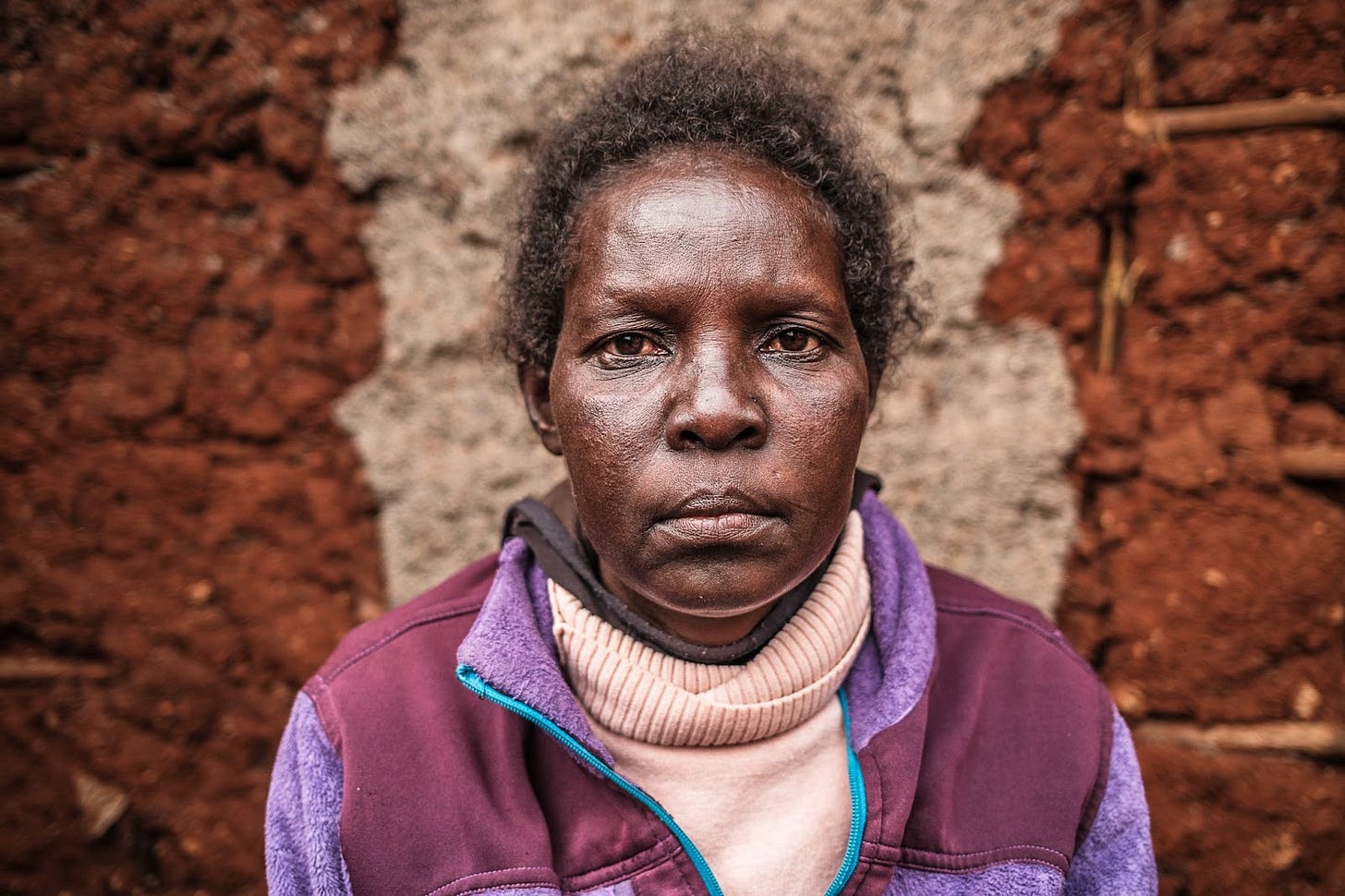
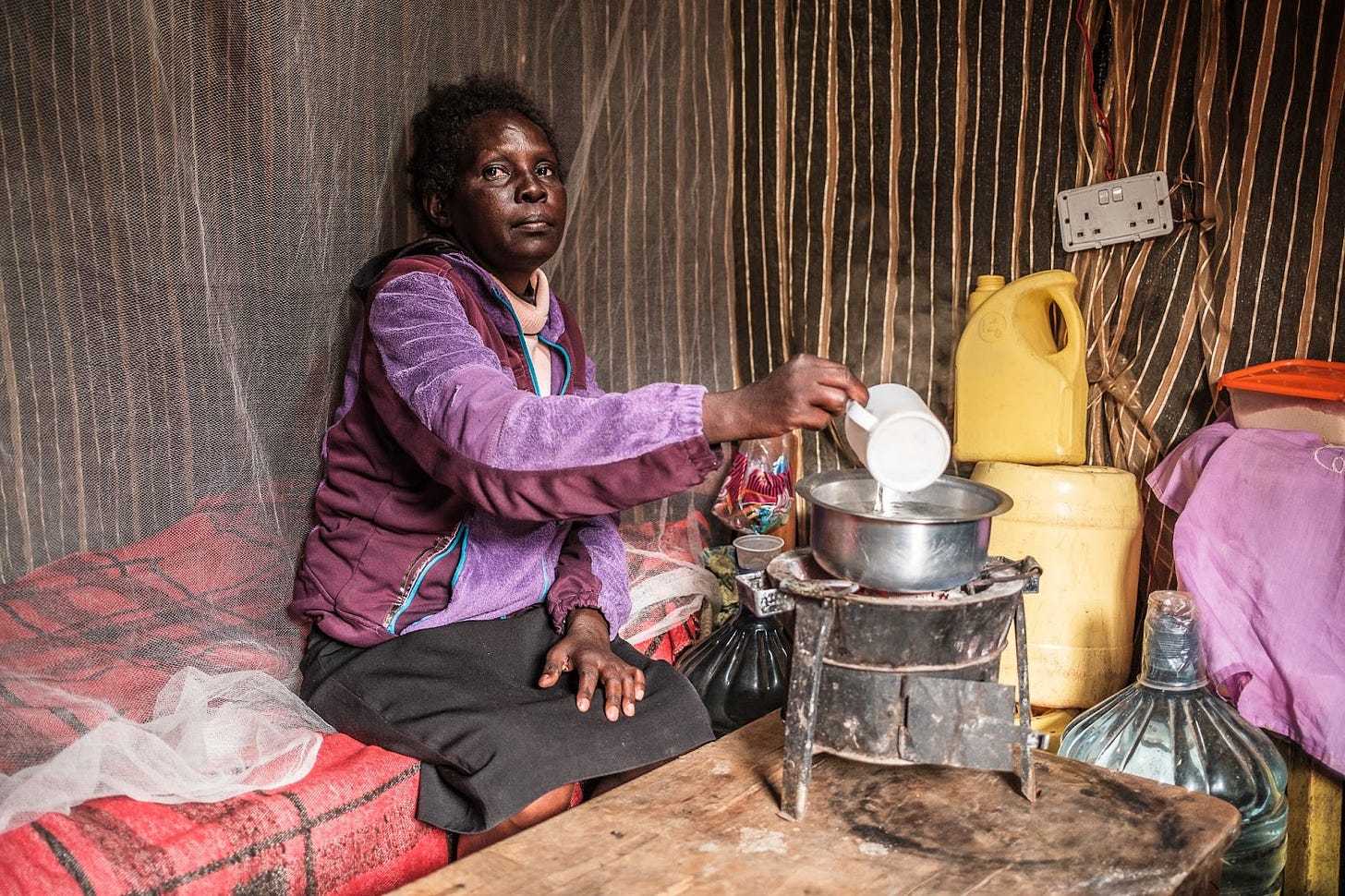
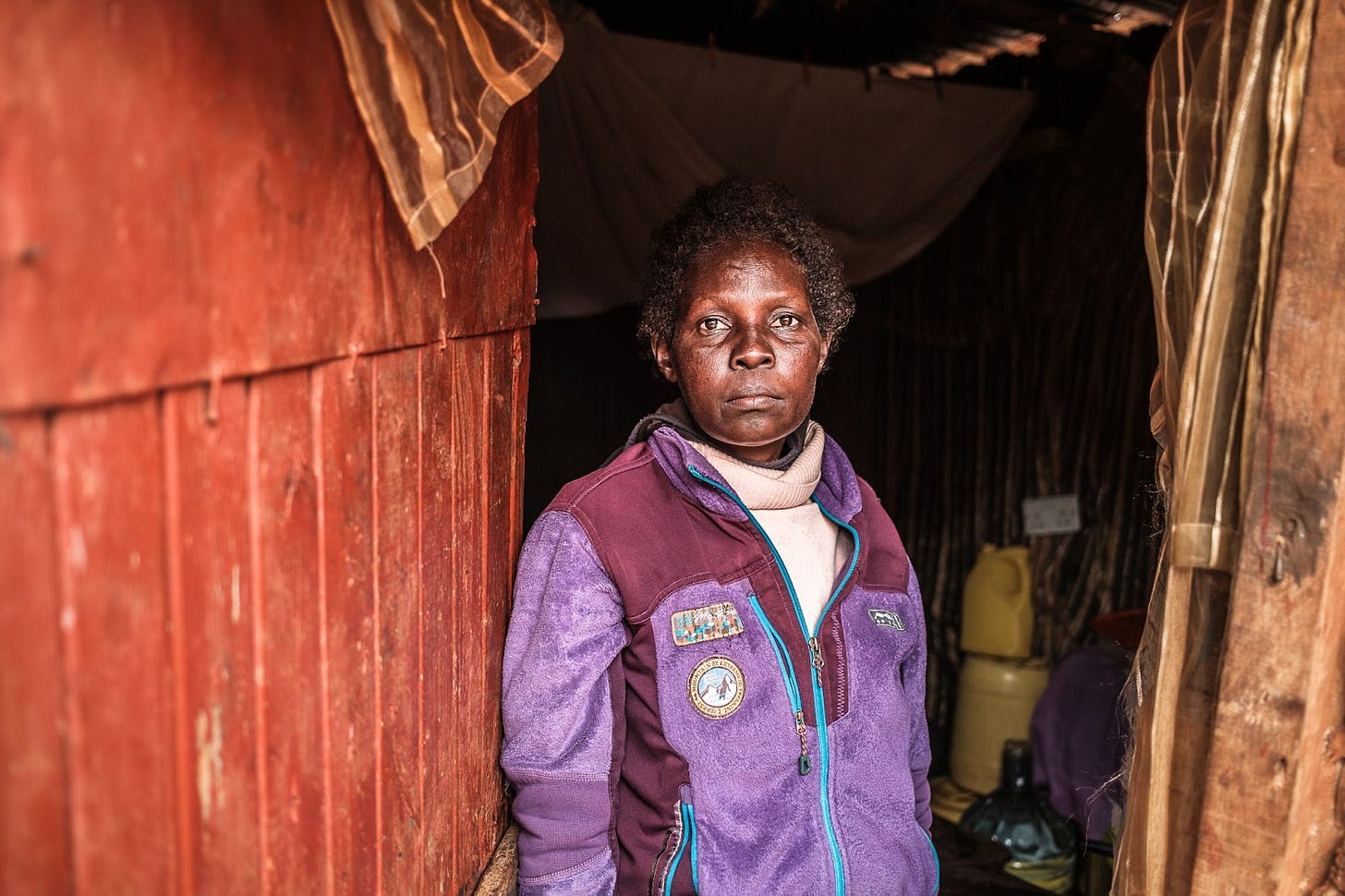
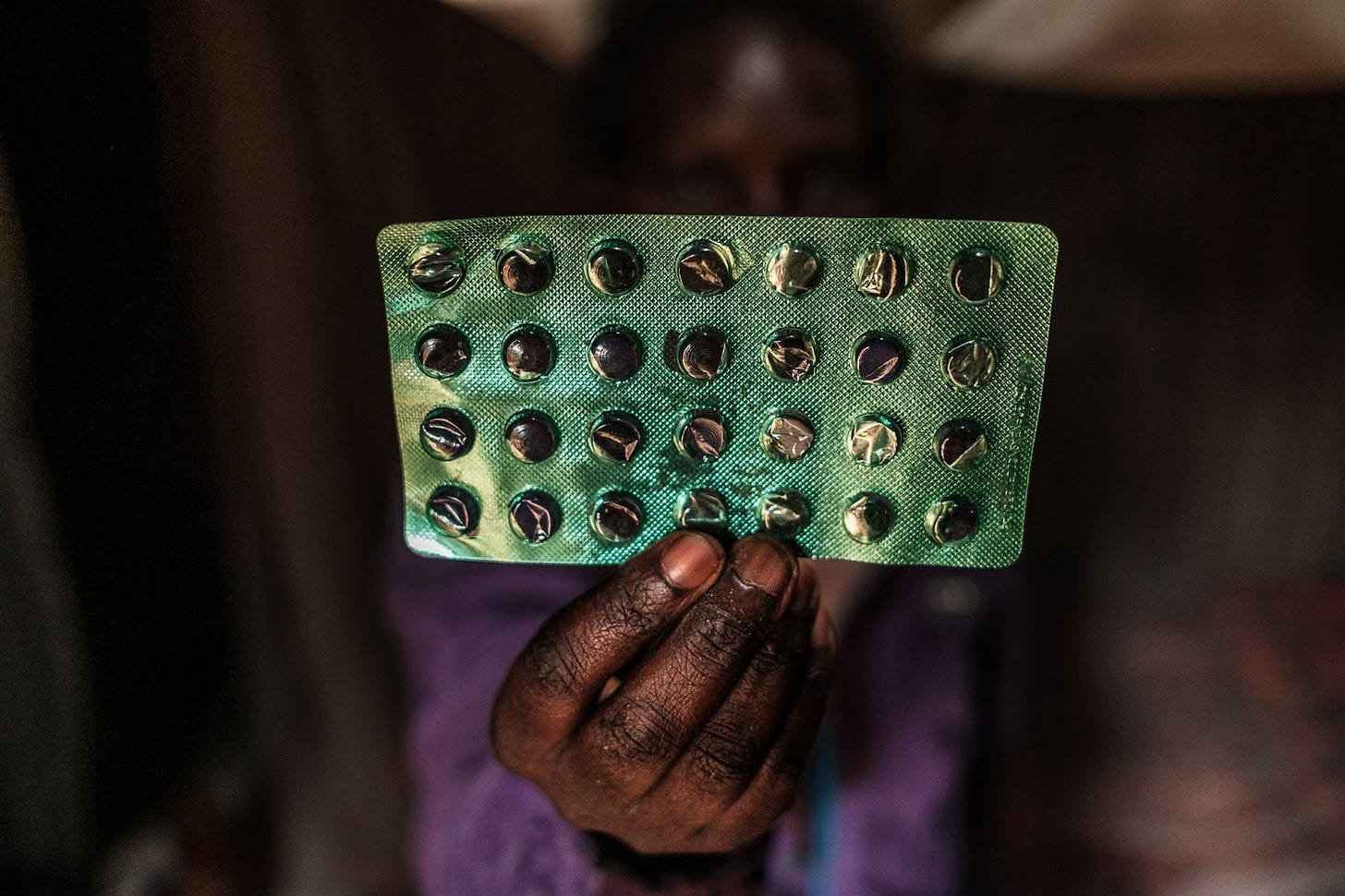
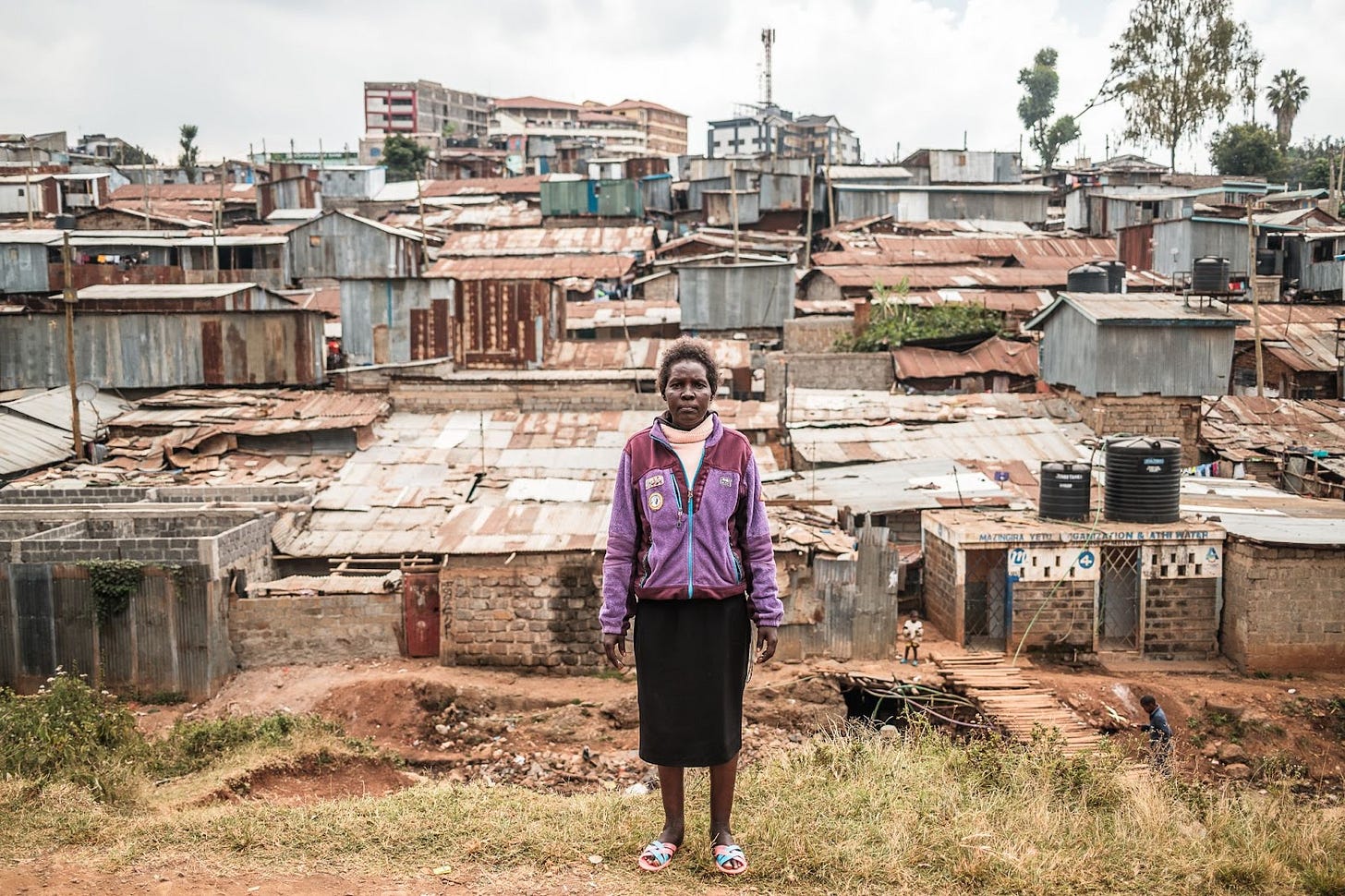
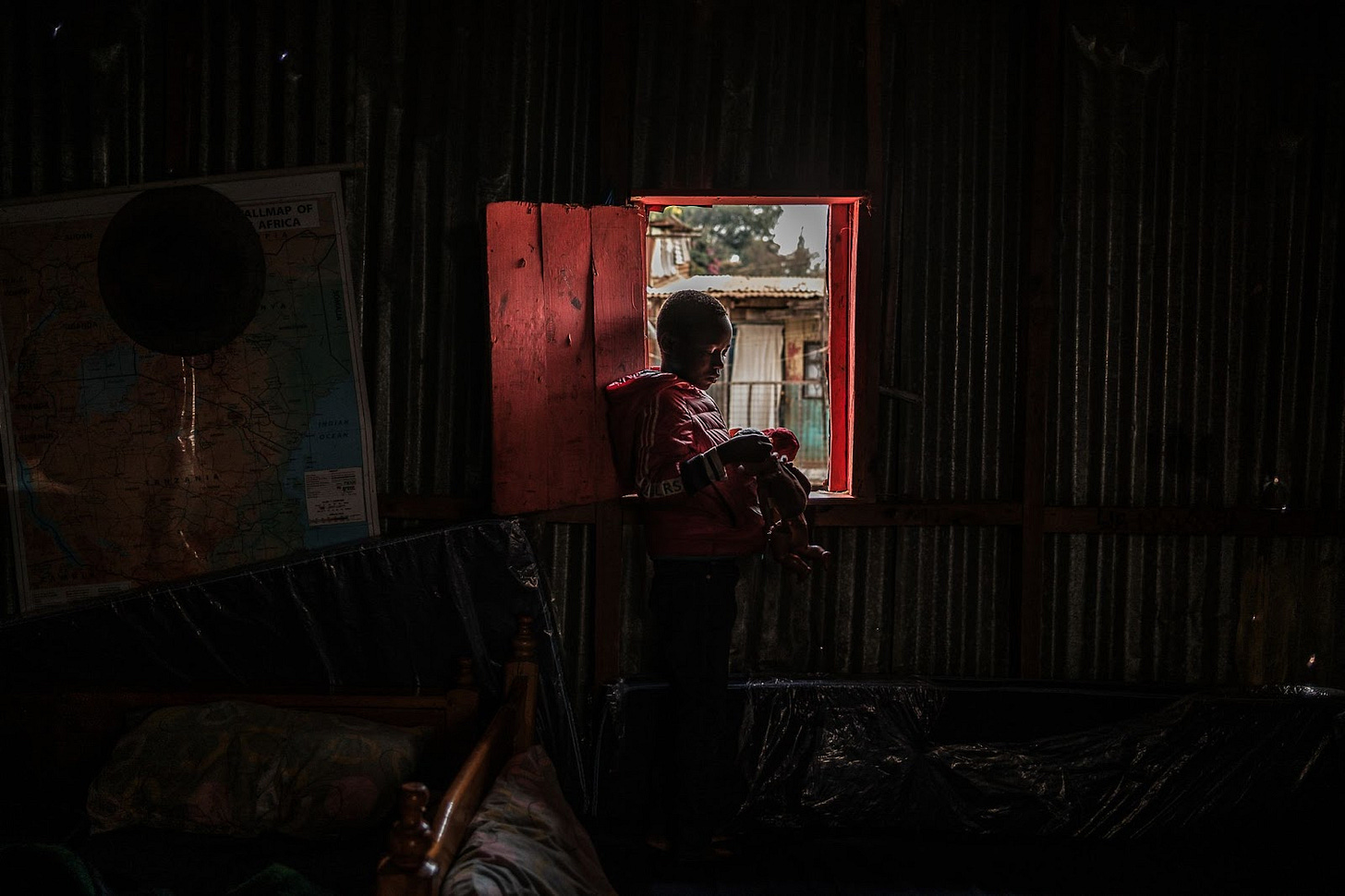
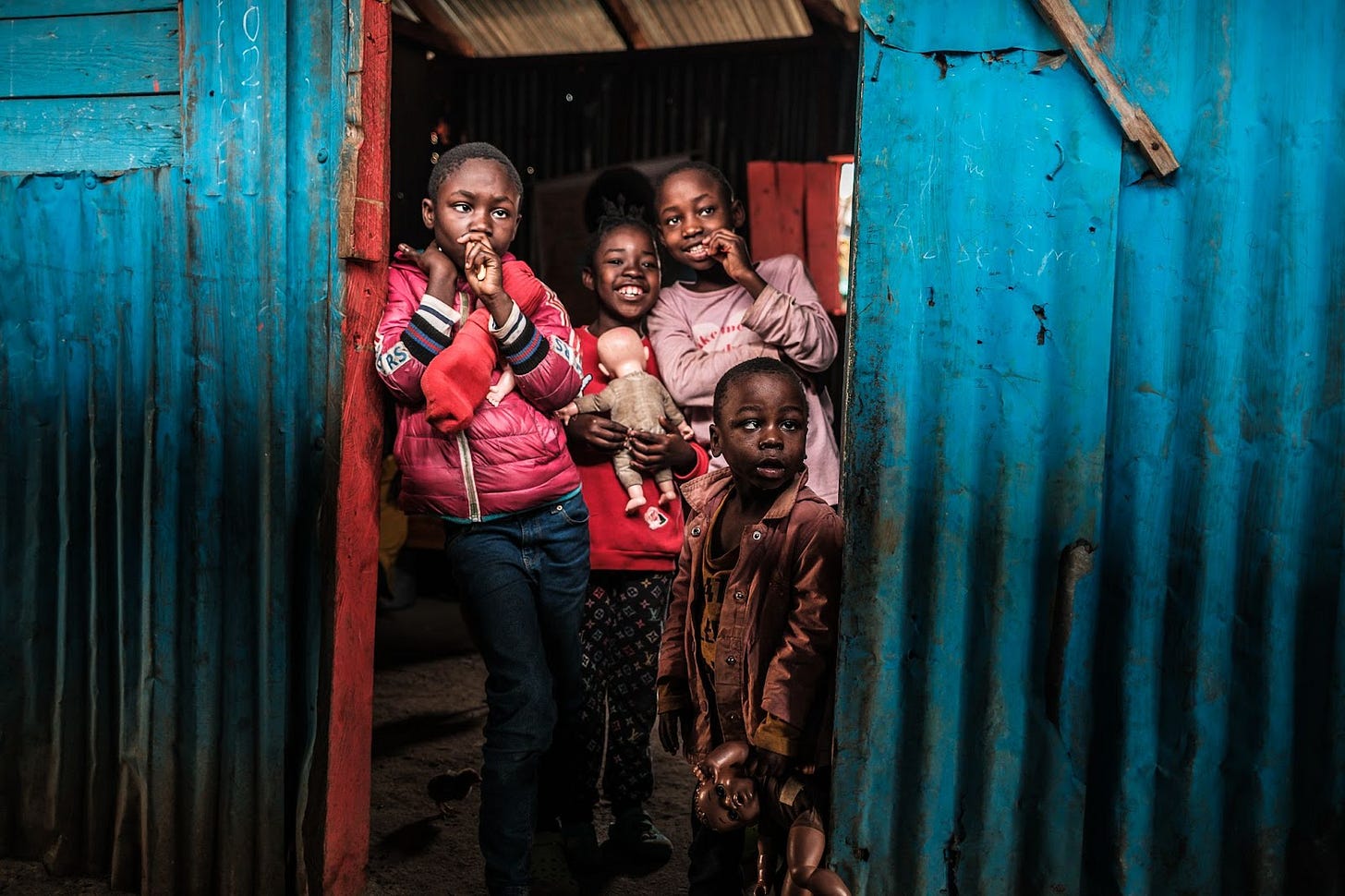
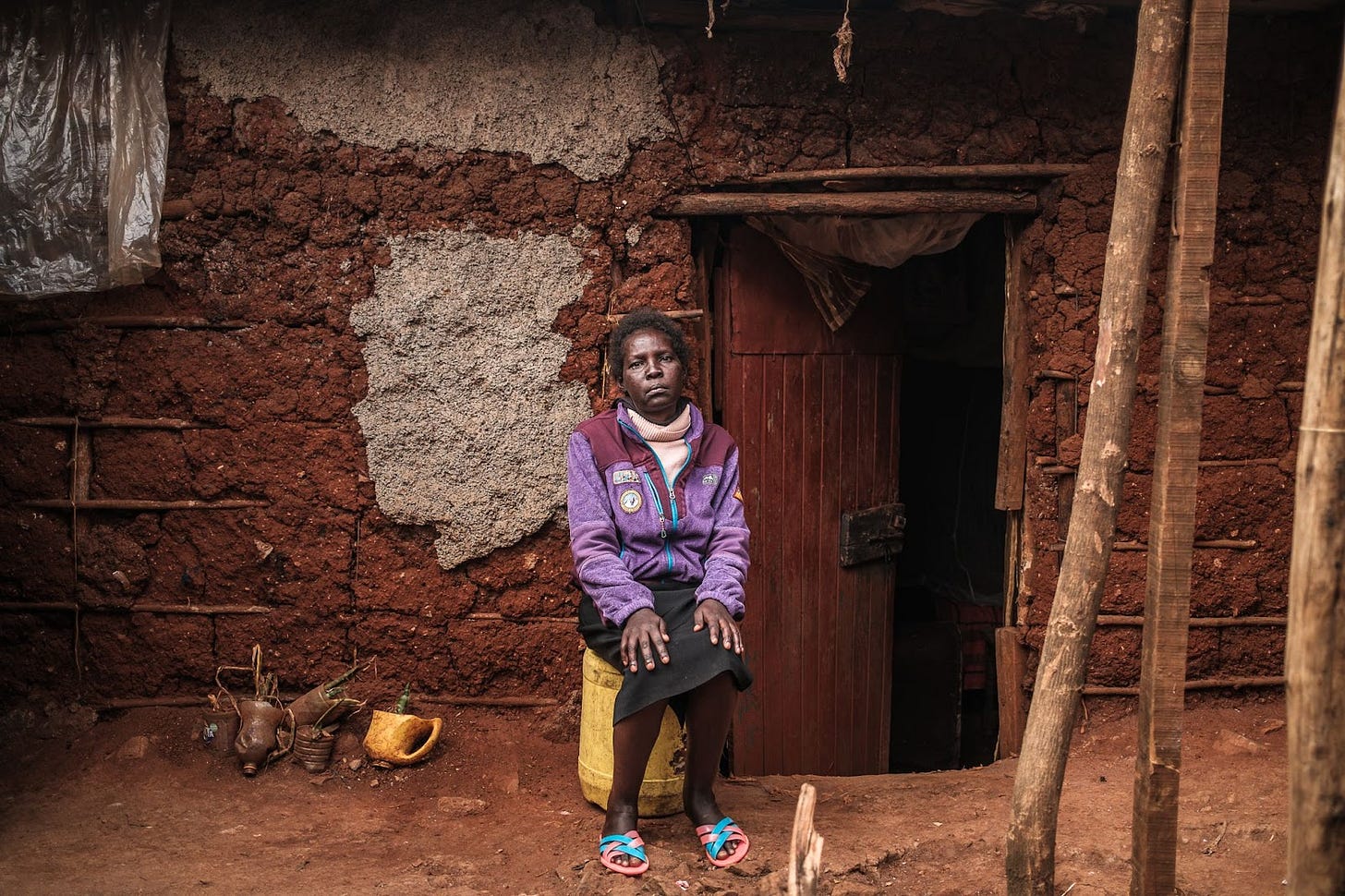

He really is dumber than a pail of quahaug shells